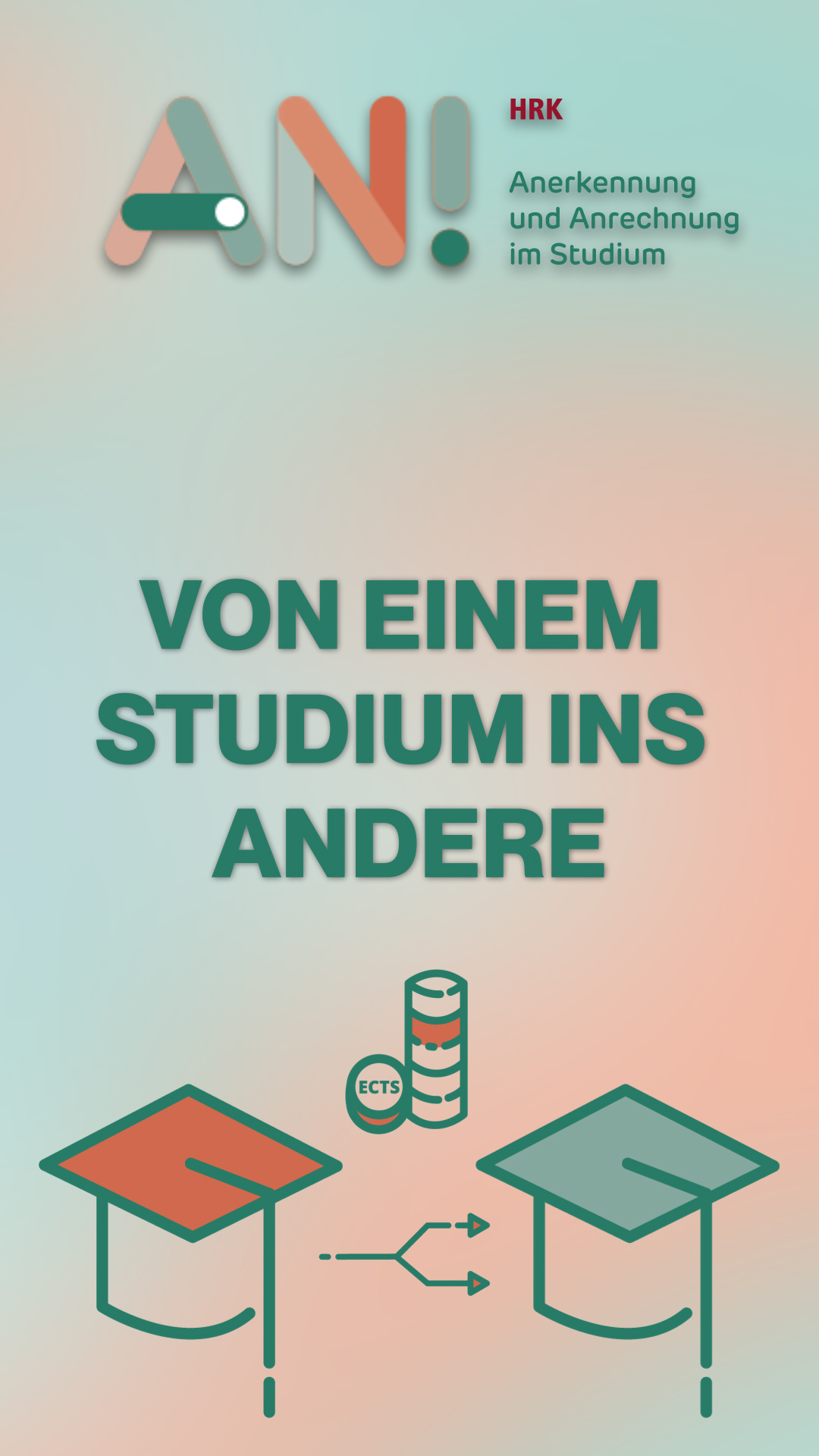- Having your academic achievements and competences recognised is not as complicated as you might think. This page offers you useful information and tips for successful recognition. Let’s get started!
Here’s how it works: 3 steps to recognition
Who are your contact persons? Which tasks should you take care of and when? Our overview tells you, step by step. You can find more questions in our FAQ!
Step 1: How to find information in advance
- No matter what reason you have for changing from one university or study programme to another, you should inform yourself about your possibilities at your current and/or new university and check which documents you need to have ready. Be sure to take advantage of the university’s advisory services. Good preparation saves you stress and makes the recognition process easier!
Step 2: How to submit your application
- The next step is to submit your application for academic recognition to your current university or the new university to which you have applied. However, you don’t have to apply for recognition of your achievements before you start your new study programme. As a rule, academic recognition takes place after matriculation (enrolment) in the study programme. It is advisable to apply for recognition right at the start of your study. That way you can structure your study plan ideally and plan your studies well (e.g. to have more time for a stay abroad). However, it is still possible to apply for recognition in the further course of your studies if you have not yet completed the corresponding module. You can also find out from the responsible person at your university (e.g. the academic recognition officer, course guidance, etc.) exactly how to submit your application. They can also tell you whether there are any deadlines you need to meet when applying for recognition.
- By the way: You have an obligation to cooperate when submitting the application and during the subsequent assessment. You need to provide your university with all the information it needs to assess your application conclusively. Otherwise, the university has the right to stop processing your application prematurely and to refuse recognition due to a lack of information.
Step 3: How the assessment and decision-making work
- After the application for recognition has been received by your university, your application documents will be checked for completeness and authenticity and then evaluated in terms of content. Academic recognition is decided by comparing your competences acquired at another university or in another study programme with those required within the university’s study programme. Simply put, the question is whether there is a substantial difference between the competences acquired and those to be acquired. Along with the assessment of whether the institution or programme meets the standards of a (German) university, the learning outcomes achieved at another university or in another programme are the most important basis of examining a substantial difference.
- Here, the burden of proof is reversed – i.e. the burden of proof lies not with you, but with the university, which must demonstrate that your achievements cannot be recognized because a substantial difference exists.
- Please be patient – the recognition process can take up to three months. At its conclusion, you will receive a notice of the formal decision. If your university recognises your achievements, it can also simply record them as such in the campus management system. If they were graded, your grade will usually be accepted; if they were ungraded, they will be recognised as “passed”. Grades from abroad will usually be converted.
- If your application for academic recognition is rejected, you will receive a notice of rejection and have the option of lodging an objection (see options for objecting).
- The fact that achievements you have attained at another university or in another study programme have been recognised is usually noted in your transcript of records.
Steps in the academic recognition process

 Checklist
Checklist
Step by step to successful academic recognition when you change your study programme or university – summarised here in our compact checklist.

What’s next?
- In principle, this information applies to all German universities. However, there are differences between the federal states, and the universities themselves can determine how the procedures are structured, which can lead to differences. So please contact your university that you would like your competences recognised by.
Want to know more?
- The Higher Education Compass provides information on the study programmes offered at German universities. You also have the option of using a search engine on the site to look for different study programmes in Germany: hochschulkompass.de/en
- If you come from abroad, you can find out at www.myguide.de/en/ which study programmes at German universities suit you and test your entry requirements for studying in Germany.
- The information and application portal https://www.hochschulstart.de (in German only) has all the information about applying to study at German universities; it also coordinates certain procedures (e.g. the Central Award Procedure for Human Medicine, Veterinary Medicine, Dentistry and Pharmacy).
- The official study guide for Germany from the Federal Employment Agency and hochschulstart.de, https://studienwahl.de/en is the place to explore all fields of study and get a lot of further information on applying, financial questions or sources of guidance.
From one course to another – all the important questions and answers
“Tell me again how it works?” Our FAQs provide concise, straightforward answers to important questions about recognition of your achievements and competences from your prior studies.
The lexicon – everything you need to know about academic recognition and recognition of prior learning
Unfortunately, a few technical terms can’t be avoided. But don’t worry, our lexicon gives you simple and comprehensive definitions and explanations in alphabetical order – from accreditation and options for objecting to state higher education laws.



